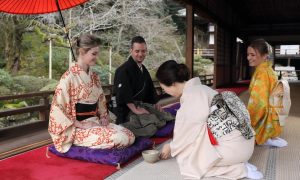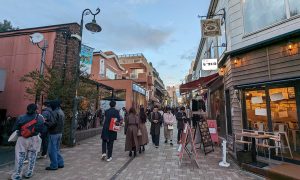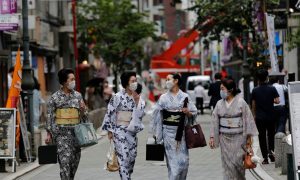In recent years, more and more families are choosingtake care of the kidsImmigration to JapanWhether it's forQuality education, good living environmentOr is it just for the fun of it?Well-established social benefitsJapan has become the home of manyimmigrantsof popular destinations.
So.Immigration to JapanHow will children's education be organized after? How will the cost of living change? What kind of family benefits does the Japanese government provide? This article will give you a detailed explanationtake care of the kidsImmigration to JapanThe full range of tips for, to help you be prepared for anything!
1. Why choose Japan as an immigration destination?
Japan is known for itsHigh-quality education system, safe social environmentas well asGood medical benefits, becoming an important option for many families considering immigration. Here are a few core advantages:
✅ World-class quality of education: Japan's basic education system is firmlyworld's foremostand public schoolstuition-freeThe international school options are plentiful.
✅ Good social security: Japan has the world's highest crime ratelowestOne of the countries that are suitable for families to live in for a long time.
✅ Comprehensive medical coverage: Japan's healthcare system is a world leader, and immigrants can benefit from theuniversal health insuranceThe
✅ Comprehensive child welfare: Provided by the GovernmentChildcare allowance, child medical assistance, free vaccinationsand many other benefits to reduce the financial burden on families.
However, before formally immigrating, you need to understand Japan's education system, cost of living, and family welfare policies in order to be fully prepared.
2. Explanation of the Japanese education system: How to choose the right school?
(1) Stages of Education in Japan
The education system in Japan is similar to that in Europe and the United States and is divided into the following stages:
| educational stage | Age range | Main features |
|---|---|---|
| Kindergartens (kindergartens) | 3-6 years | Some public kindergartens are free, private kindergartens are more expensive |
| secondary schools | 6-12 years | Public elementary schoolTotally freeHigher private tuition fees |
| junior high school | 12-15 years | Public junior high schools are free and the quality of education is high |
| congrats! (on passing an exam) | 15-18 years | High school tuition is required and some private schools offer scholarships. |
| college | 18 years and over | Japanese universities lead the world in quality, such as the University of Tokyo, Kyoto University, etc. |
(2) How to choose the right school?
✅ public school(Suitable for long-term settled families)
- Public elementary and junior high schools are free of charge, the quality of education is high, and children are able to integrate into Japanese society.
- Some basic Japanese is required, and there may be an adjustment period for children who do not speak Japanese.
✅ international school(for short-term migrant families)
- major professorIB, A-Level or American programsThe tuition fee is expensive (more than 1 million yen per year).
- fit planFuture returnsmaybeFurther studies in Europe and the United Statesof the child.
✅ private school(suitable for high-income families)
- Provision of better teaching and learning resources, with some schools receivingNon-native Japanese speakersThe
- Tuition is expensive, but there is a scholarship system.
📌 suggestion: If the programLong-term residence in Japan, recommending that the child enter thepublic schooland lower costs and easier integration into the community. If it isShort-term immigrationOr if you plan to return to your home country in the future, you may choose an international school.
3. Cost of living analysis: How much does it cost to live in Japan with children?
When immigrating to Japan with children, the cost of living for the family is a concern for many people. The following areCost of living reference for major cities in Japan(Tokyo as an example):
| living expenses | Reference cost (per month) | note |
|---|---|---|
| rent for a room or house | 100,000-250,000 yen | Depends on area and room type |
| water, electricity, gas and electricity | 15-20,000 yen | Higher electricity consumption in winter and summer |
| transport costs | 10,000-30,000 yen | Additional expenses may be required for transportation of children to school |
| board expenses | 50,000-100,000 yen | Depends on family diet |
| education expenses | Public free, private 100,000 yen onwards | Choosing public schools reduces the cost of education |
| medical insurance | 10-20,000 yen | Health insurance required for the entire family, with adequate Medicaid for children |
📌 Tips to save on the cost of living::
- optionSuburban or second-tier citiesLiving in places such as Saitama and Chiba, where rent is cheaper.
- public educationfree (of charge), try to choose public schools.
- JapaneseDeveloped secondary market, children's items, furniture, etc. can be obtained at low prices.
4. What are the family and child benefits in Japan?
(1) Child benefit (childcare allowance)
✅ Children aged 0-3 years: Monthly15,000 yen
✅ Children aged 3-15 years: Monthly10,000 - 15,000 yen

📌 draw attention to sth.: Allowances are reduced for households with incomes above a certain threshold.
(2) Free medical care and vaccines
✅ Medical care for children is virtually free, some areas require a nominal payment (e.g. 500 yen per visit).
✅ Government provides free vaccinations, covering a wide range of diseases such as measles, rubella, chicken pox, etc.
(3) Childcare Leave and Benefits
✅ Mothers are entitled to maternity leave with pay for up to one year.During the period, you can receiveWage supplement for 60-80%The
✅ Parental leave for fathers progressively extended, some businesses already support paid parental leave.

(4) Childcare assistance
✅ Government subsidized child care centersSome areas are availableFree childcarePolicy.
✅ Children on Standby(i.e., there is a shortage of places in public childcare centers) is more common in major cities such as Tokyo, and it is advisable to apply as early as possible.
5. How can I successfully immigrate to Japan with my children?
(1) Choosing the right type of immigration
✅ Work Visa Immigration(for parents with job opportunities)
✅ Entrepreneurial Visa Immigration(For families who want to invest in Japan)
✅ Highly talented person visa(for highly educated, high-income professionals)
✅ Study + Work Visa(Suitable for parents or children to study abroad first and then apply for a work visa)
(2) Planning ahead for children's education
✅ Find out about public, private and international schools in your target city.
✅ Apply to schools early, international schools are more competitive and you need to apply a year in advance.
(3) Adaptation to Japanese culture in advance
✅ Learn basic Japanese and improve communication skills.
✅ Learn about Japanese social customs such as garbage sorting and public etiquette.
6. Conclusion: Japan is a high-quality choice for family migration!
take care of the kidsImmigration to JapanIt means betterEducation, health, quality of life, but it also requires adequate planning. ByChoosing schools wisely, controlling the cost of living, and taking full advantage of child benefitsIn addition, your family will be able to integrate more smoothly into Japanese society and enjoy a high quality of life!






